Newsletter
Don't miss a thing!
We regularly provide you with the most important news, articles, topics, projects and ideas for One World – No Hunger.
Newsletter
Don't miss a thing!
We regularly provide you with the most important news, articles, topics, projects and ideas for One World – No Hunger.
Please also refer to our data protection declaration.
We can only benefit from technical progress if we have a solid legal framework. So far, none is in sight. Instead, international corporations grow ever more powerful.
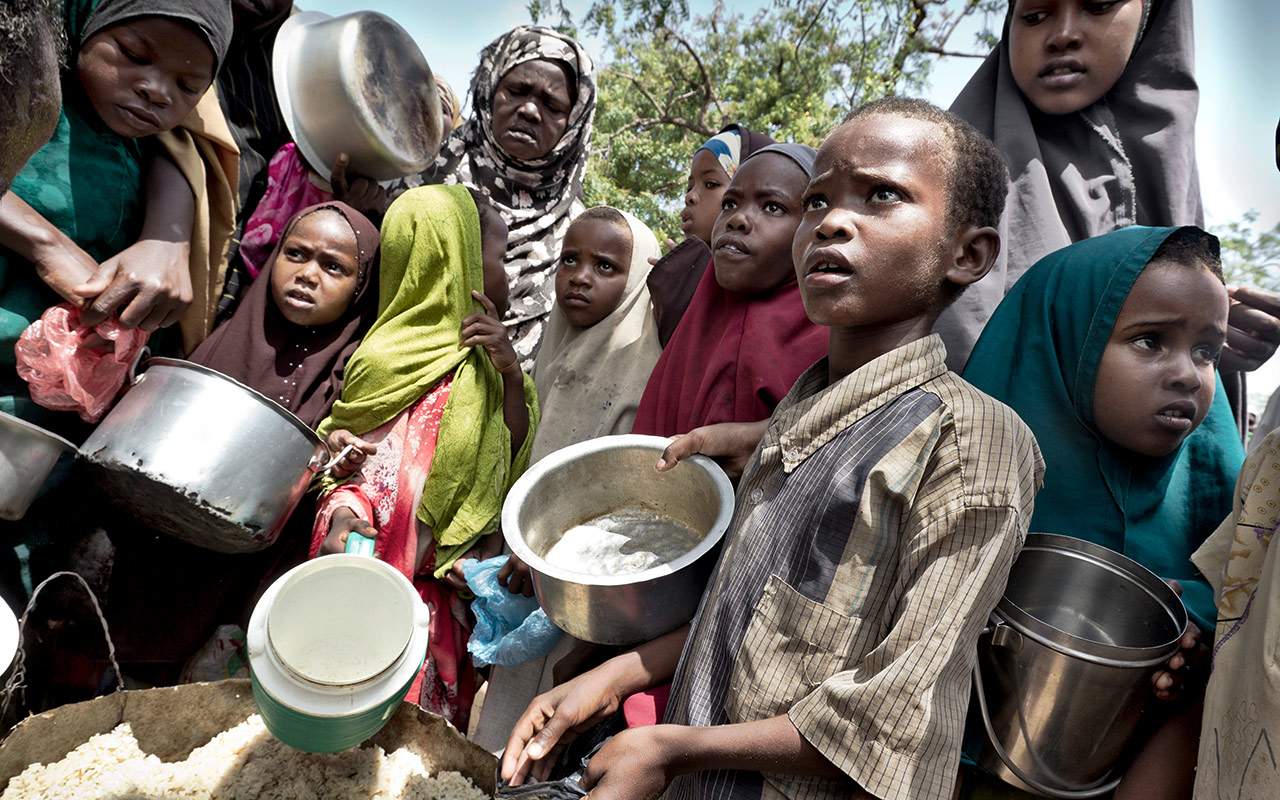
Many see the digital transformation of agriculture as a beacon of hope in the fight against world hunger and poverty— including the German Federal Ministry of Economic Cooperation and Development. In their brave new world, drones will help us record plant stocks, pests and crop yields more effectively, while the optimised application of chemical fertilisers and pesticides will boost the latter. Apps and chat groups will close the gaps in specialist agricultural consulting that opened due to the dismantling of governmental consultation structures carried out within the scope of structural adjustment programmes. Expectations in digital price information services and marketing management systems are similarly high: those advocating the digital transformation hope that it will rapidly solve structural agricultural and infrastructural problems in developing countries, setting off a development boom. Many private-sector players, especially digital and agricultural corporations, eagerly fan the flames of that hope. The Bayer-Monsanto corporation and others like it drive the development process forward and have designed their long-term business model with a digitised agricultural sector in mind.
Oligopolistic structures already exist in many agricultural sectors that are the focus of the ongoing digitisation efforts—efforts that are promoted by corporations with an inherent interest in profits. This process is best known in the context of seeds and pesticides. Thanks to the digital transformation, these oligopolistic structures are ever closer intertwined and grow ever more powerful. The new, digital devices record the farmers’ every activity with timestamps: sowing, any application of pesticides and fertilisers, harvests, storage and distribution. Based on the data collected, many corporations endeavour to offer comprehensive solutions for the entire production chain. Wherever that is not an option, they collaborate with one or two other major corporations from other sectors. A partnership between a seed and pesticide producer, a manufacturer of agricultural machinery and a major dealer of agricultural commodities can be very profitable, for instance.
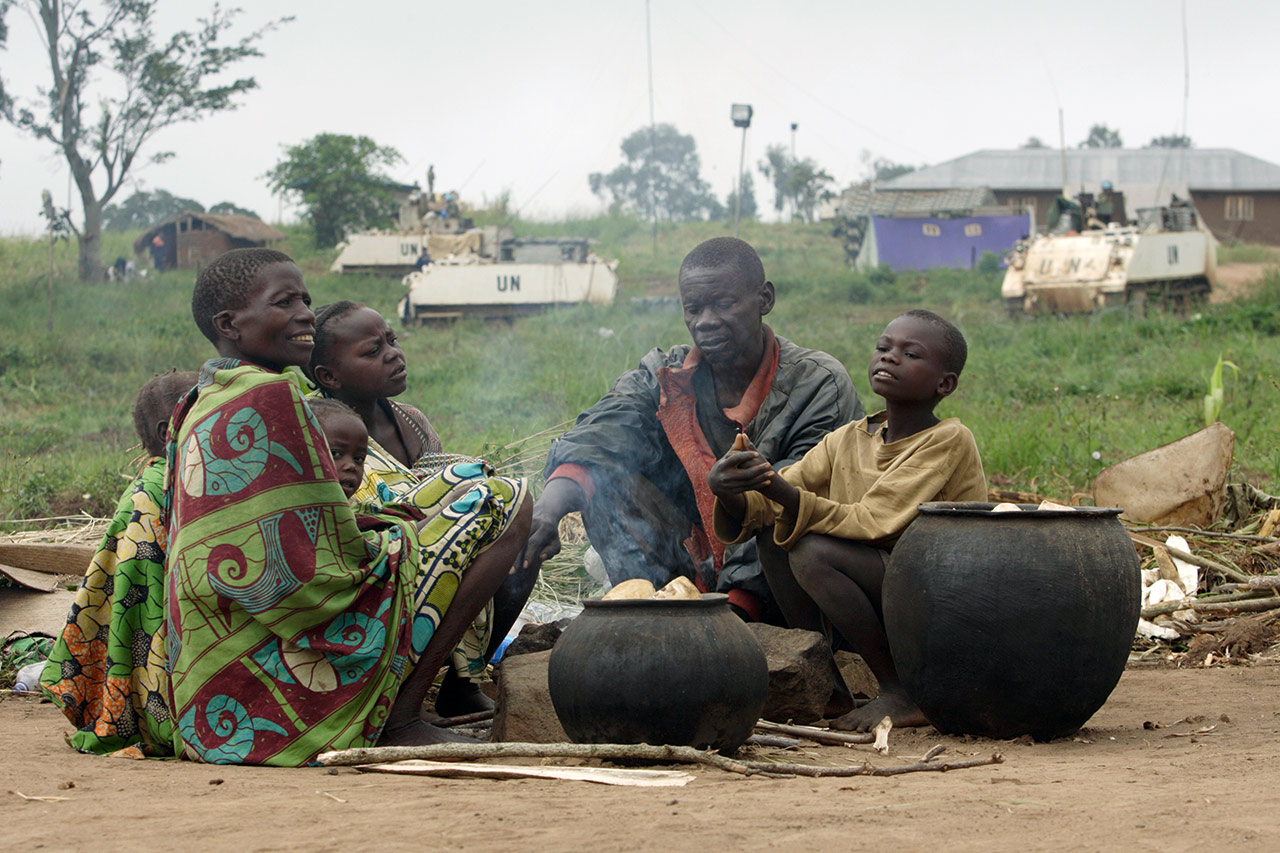
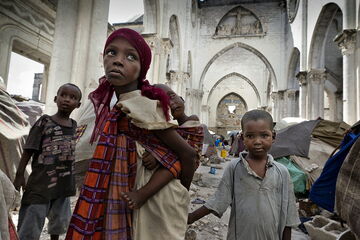
Considering the substantial market power that corporations such as Bayer, John Deere, Cargill and Amazon already wield, it seems unlikely that any profits will trickle down to the poor population and the farmers themselves: they are, quite simply, the weakest links. Farmers also run the risk of being locked into the business models of the players that run these digitisation efforts: their access to consultation effectively becomes limited to services offered within the corporate frameworks. A Bayer app is unlikely to promote agroecological crop protection methods. The United Nations and the affected countries themselves must step up regulations for the digital transformation of agriculture in order to protect farmers from such risks and give them access to digitised structures in a way that strengthens their rights against corporations and national governments. The following section discusses a number of important regulatory approaches. They are issues that cannot be solved without first determining who currently benefits from digitisation.
The current hype around the digitisation of agriculture in international development seems to suggest the emergence of a new phenomenon. That is not the case. Certain studies on the current state of the digital transformation in the agricultural sector, including some commissioned by the Food and Agriculture Organization of the United Nations (FAO), have produced worrying results: far from bridging it, digitisation deepens the gap between the industrial and developing nations, between urban and rural areas, men and women. In order to use the new, digital structures in the first place, people need a basic infrastructure and a compatible device. This, in turn, requires considerable financial resources and reliable access to electricity and a network connection. Rural regions of developing countries, in particular, have struggled (and failed) to meet these requirements for decades. Women frequently lack access to money. This complicates their independent access to the digital world or prevents it entirely. As a result, the digital transformation simply does not reach many female farmers in rural areas. Considering the UN Sustainable Development Goals (SDGs) and their mantra, “Leave No One Behind”, however, they are a particularly important target group.
It is important to keep in mind that 50 per cent of the global population do not have access to the internet. In the least developed countries, only 17.5 per cent of citizens use the internet at all. These figures should be enough to make us pause and think about the conditions that must be put in place to create a digitised agricultural sector that can genuinely help people living in poverty and suffering from hunger. We must ask ourselves: does the digital transformation worsen social inequality? What relevant insights do we already have in the context of international development?
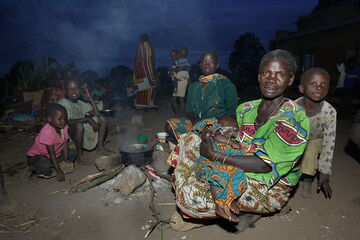
A British study from 2018 explores that very topic. Its conclusion: far from reducing inequalities, digitisation in its current form reinforces them. The authors list a large number of problems that cause disadvantages for people living in poor, rural areas.
In light of those problems, it is crucial that we find a way to help disadvantaged communities exercise their rights. This explicitly applies to the project of digitising agriculture.
The digital economy revolves significantly around the corporate utilisation and evaluation of data. Digital applications developed by corporations to provide farming and marketing advice (fertilisation, crop protection etc.) are often free or nearly free to use; in turn, they feed the corporate programmes with relevant operating data. The providers use these data as a basis for expanding and optimising their programmes and services and, ultimately, gain more and more influence on the market. They then hope to sell their applications for ever-increasing profit. The data produced by agricultural businesses, then, constitute a future financial asset for corporations. Before using the digital products, farmers are asked to consent to their general terms and conditions—and to the processing and further utilisation of their data. They effectively give up the rights to their own data. What exactly the acceptance of said terms and conditions may entail is yet to be seen. In a worst-case scenario, corporations might copyright certain peasant practices, such as the traditional treatment of seeds with cow urine, thus preventing the farmers from using their traditional knowledge without restrictions.
This is highly problematic from a human-rights point of view. A lot of the data collected about seeds and growing techniques constitute traditional or peasant knowledge, which various legal contexts deem especially worthy of protection. The data also form the basis of the farmers’ entire production systems, and they are given up to corporations that embody an industrial, rather than agricultural, production system. This could create another gap to the detriment of farmers. Digital applications are developed primarily with industrial systems in mind, which prescribes a certain development to the farmers using them. This lock-in effect, of course, largely benefits the corporate players behind the applications.
The United Nations has established legal frameworks for the protection of peasant and traditional knowledge. If these frameworks were to be made concrete and adopted as national laws, they could curtail the corporations’ currently unrestricted access to the peasant data they so crave. Both the UN Convention on Biological Diversity (e.g. Article 8) and the FAO International Seed Treaty (Article 9: Farmers’ Rights) demand that all signatories develop and pass legislation to protect peasant and traditional knowledge. Their purpose is to prevent the abuse and commercialisation of said knowledge by third parties without the explicit consent of those affected. Consequently, the general terms and conditions of digital applications should be phrased completely differently and revolve around the protection of peasant knowledge.
The purpose of the aforementioned treaties is to ensure that said knowledge remains a common resource available to all. Both aim to achieve that goal by means of regulations governing access to (digital) resources and benefit sharing. In this system, it would be up to farmers to decide whether to grant access or use the application without consenting to the utilisation of their data. For the providers, this would mean offering multiple options. If they do grant access, they would be required to share the benefits in turn, ensuring that peasant knowledge is preserved and strengthened as a common resource. Unfortunately, the competent legislators have failed to develop such laws in the past years.
At the same time, both treaties have unleashed a fierce argument between the Global North and the Global South: does the established mechanism governing access to genetic resources and benefit sharing (ABS) also apply to digital sequence information (DSI), i.e. digital information derived from analogue genetic material? The heated disagreement between the signatories emphasises the close relationship between the two treaties, the digital transformation and its legal frameworks.
Many nations have acknowledged their failure to protect traditional knowledge sufficiently. In 2018, the UN Peasant Rights Declaration once again underscored the necessity to protect said knowledge. Both the German government and the Federal Ministry of Economic Cooperation and Development, in particular, must respond by stepping up their implementation of the legislative duties laid down in the International Seed Treaty—and helping other countries follow suit.
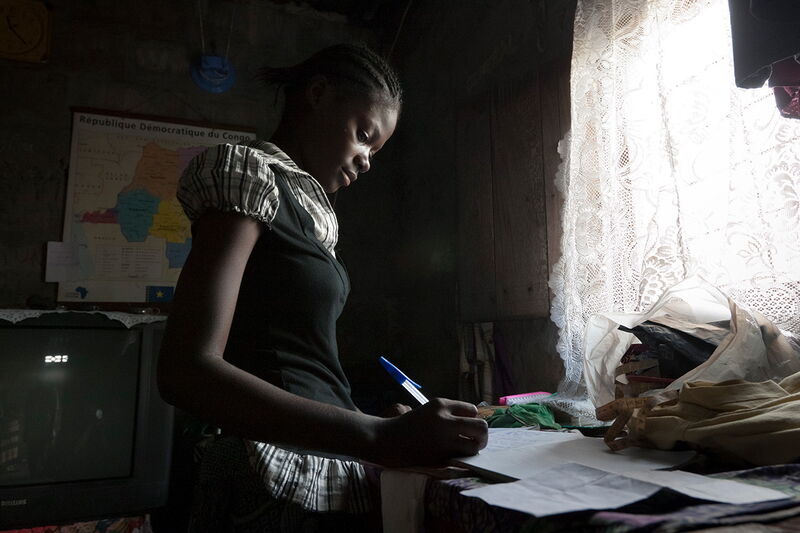
A valid first step would be for the Ministry to commission a study that includes political recommendations. It should focus on ways of implementing the duties laid down in the Convention on Biological Diversity and the International Seed Treaty for protecting traditional and peasant knowledge in a legally binding manner that can be applied to the digital transformation. The 2015 study “The UPOV Convention, Farmers' Rights and Human Rights” by the GIZ could provide a useful model or guiding framework. This would be an important step towards implementing laws that can protect peasant knowledge in the context of the digital transformation.
But legislation is lagging far behind on other issues, too. Many African countries, including Kenya, lack data protection laws for personal data. Even the collection of data by the state is extremely controversial there. To complicate matters further, it is often impossible to guarantee that the data are stored in the same country where they were collected. At the moment, 90 per cent of data about Africa are stored in Europe or North America, i.e. in different legal frameworks. This is a major crisis of sovereignty for countries as well as peasants. How can they exercise control over their own data if said data are stored in other countries, under different laws?
The opportunities inherent to the digital transformation of agriculture are doubtlessly significant, and we must use them in a meaningful way that reduces poverty. This requires us to evaluate current development critically and tackle the problems discussed in this article. Examining the effect of our own projects on poor and disadvantaged communities is essential.
If we want the digital transformation of agriculture to take place in a constitutional manner and prevent farmers’ data and their rights to that data from falling into the hands of corporations, solid data protection laws are required as a minimum standard. We also need laws that protect peasant knowledge. There must be sufficient capacity to store data in the countries where it is collected, and that capacity may need to be established first. The same demand has been voiced by sections of Africa’s civil society already. Only if the data stay in their country of origin can we ensure that the right to those data can be exercised.
These fundamental frameworks are necessary to ensure that the digital transformation of agriculture can be implemented in a way that benefits farmers and poor and disadvantaged communities.